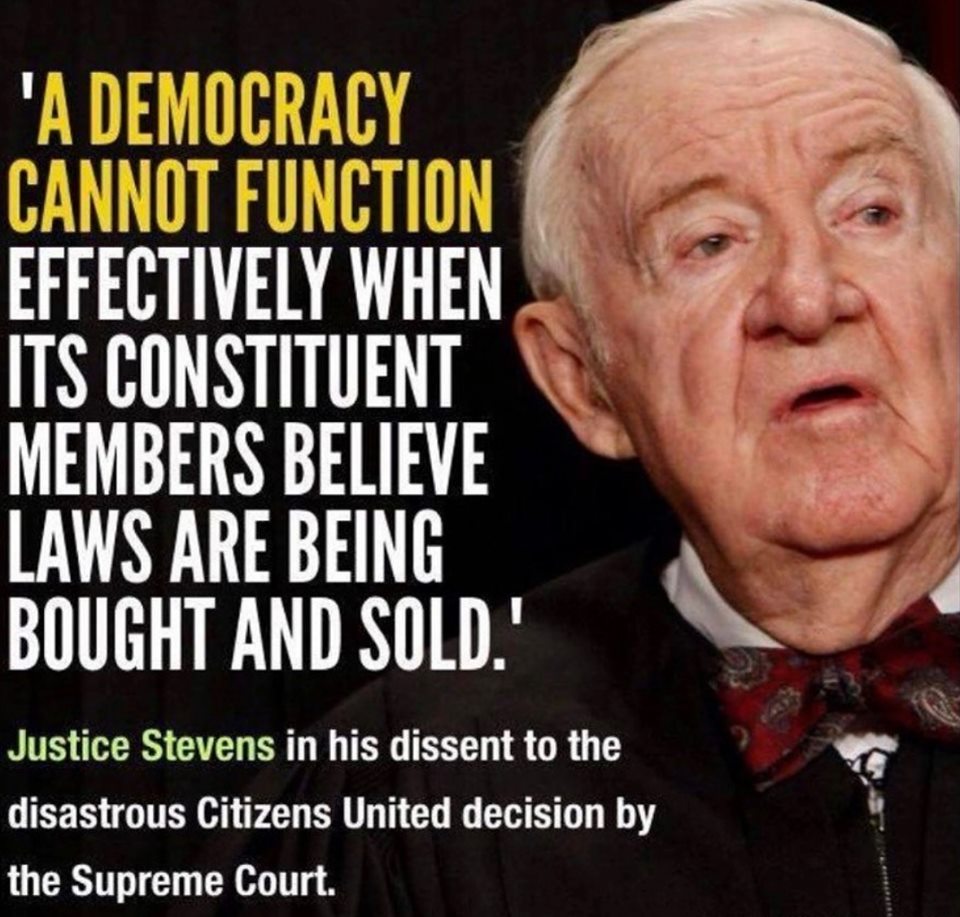John Paul Stevens, Proponent of Sustainable Democracy, Dead at 99

Though the exact causality that Citizens United has had on the radical decline in the quality of U.S. democracy can be debated, it’s clear that we’ve arrived at a point in which the U.S. suffers under a political machine that systematically ignores the will of the people. Here are a few facts that came from a presentation that Harvard Law professor Lawrence Lessig gave to a large and earnest audience:
- According to surveys of thousands of Americans, we almost unanimously agree on two things: a) money has too much influence on politics, and b) there is nothing that can be done to change this.
- 5.4 million Americans (a little under 2%) made cash donations to a politician in the last election, but the top 100 gave more than the bottom 4.75 million.
- A study from Princeton University shows an almost 100% correlation between Congressional votes and the interests of these Top 100.
- The same study shows that the decisions that Congress makes on the variety of issues are completely independent of the will of the people. Whether 20%, 40%, 60%, or 80% of the electorate supports a certain subject, this has no statistical bearing whatsoever on how the Senate and the House will vote on the matter.
To say that the U.S. is a democratic republic is not technically incorrect, but it is an assertion devoid of all meaning.
To his credit, Stevens saw this coming, and did what little he could to try to prevent it. He will be missed.

Craig,
It’s a very curious fact that phases such as “the will of the people” and “quality of democracy”
are invariably used subjectively by failed advocates who neither represent “the people’ or have any interest in democracy.
What they are really complaining about is, “Whaaah, I can’t get enough people to agree with me so I want the rules changed to favour me!”
In the 2016 US Presidential election, Hillary Clinton had 10 times the funding of her opponent, Donald Trump, a huge fully staffed, experienced, professional political election machine, with tens of thousands of full time and paid staff.
She also received over 84% media support.
But she lost to a first time candidate, with very little funding, no great media support and a very small and inexperienced campaign team.
2016 was undeniable evidence that all your assertions are merely an emotive excuse for you inability to accept the “will” of the people as expressed through the ballot box.
As long as you keep finding excuses ranging from Russians to Citizens United, to prevent you admitting you lost because of your own arrogance and hubris, you will be doomed to wander the political wilderness.